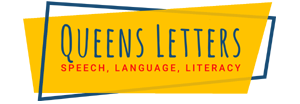QUEENS, NY, AUTISM SPECTRUM DISORDER ASD EVALUATION

We travel throughout Queens, NY to the following neighborhoods: Long Island City (LIC), Astoria, Ditmars Steinway, Sunnyside, Woodside, Elmhurst, Jackson Heights, Corona, Ridgewood, Forest Hills, Kew Gardens, Flushing, Bayside, Fresh Meadows, Little Neck, Douglaston, Glen Oaks, Floral Park, Bellerose and more!
Autism Spectrum Disorder or ASD is estimated to affect one in 54 children in the United States alone, according to a 2020 finding by the CDC’s Autism and Developmental Disabilities Monitoring (ADDM) Network. Yet despite its prevalence, autism is also often misunderstood.
One such misconception is about the nature of the disorder itself. Because autism affects social and communication skills, it is often assumed that it is a learning disability.
For a free autism evaluation:
- If your child is 3 years and under contact your local Early Intervention e.g. NYC’s Early Intervention.
- If your child is in preschool, please contact your local school district committee for preschool, e.g. NYC’s CPSE Evaluation.
- If your child is school-aged, please contact your local public school district and request an evaluation. If your child attends a private school you are eligible for a free public school evaluation.
For a low-cost autism evaluation, please contact your insurance company for a list of in-network providers. We do not work or contact insurance companies. Also, reach out to these providers to see if they evaluate autism.
For an out-of-pocket private pay autism evaluation, the costs, on average, are between $4500-$7000 range. We will personally connect you to the top autism evaluators in your area and these psychologists offer free 15-minute phone consultations. The CPT code for both general developmental screening and for autism screening is 96110. Please contact your insurance company to see if they will reimburse you for a portion of the evaluation performed by a psychologist. Our referrals are out-of-pocket providers who do not accept insurance. However, they will provide you with a superbill to present to your insurance company.
If you would like to work with a local psychologist who has expertise in autism spectrum, please reach out to us at [email protected] and 917-426-8880.
What is Autism Spectrum Disorder?
Autism is a neurodevelopmental disorder that affects social communication and interaction and involves restricted and repetitive behaviors. People with autism will often have trouble with joint attention, responding to social situations, and using verbal and nonverbal communication. However, children can be social and still have autism. They also manifest sensitivity to sensory input as well as restricted and repetitive actions or activities, such as repetitive speech, motor movement, and use of objects.
Autism is a lifelong condition, and its causes are not entirely known. It can sometimes run in families, but other possible reasons include:
- genetic differences or mutations
- differences in brain development and function
- exposure to harmful chemicals or materials in the environment (dietary factors, drugs, and toxic chemicals
Common Challenges for People with Autism
Individuals with ASD often share the same behaviors and traits that lead to similar challenges. However many of these are not diagnostic features of autism (see below). These challenges include:
- Social skills difficulties: A person with ASD will often struggle to understand unwritten social rules and read and respond to nonverbal cues, such as body language and facial expressions.
- Sensory processing: Processing sensory information can be difficult for a person with autism. Some may seek out certain sensations, while others may have aversions and sensitivities to light, sound, touch, taste, and other senses. Difficulties with sensory processing often lead to sensory overload and meltdowns.
- Struggles with executive functioning: Executive functioning refers to the mental skills and processes that allow individuals to plan and execute tasks, focus, and follow and remember instructions within the context of getting something done.
- Trouble with motor skills or motor planning – Motor skills are a trouble spot for people with autism, making them seem uncoordinated. Children with ASD may be showing difficulties with handwriting and physical activities and exercises, such as riding a bike, running, or playing catch.
- Language and communication difficulties: In many instances, language development problems are among the early signs of autism. Individuals with autism typically struggle with self-expression and engaging in conversations.
Signs and Symptoms of Autism
A child’s behavior can present early or telltale signs and symptoms of autism. However, in some cases, these go unnoticed in young children until they start attending school. As individuals age, the symptoms may change, but the core features of ASD remain. These are:
- impairments in social communication
- impairments in language and related cognitive skills
- behavioral and emotional challenges.
According to the American Speech-Language-Hearing Association, these core features of ASD are heavily influenced by the severity of the disorder and developmental level of language acquisition. These include pre-symbolic, emerging language, and conversational language. A person with autism may also experience sensory and feeding challenges.
The signs and symptoms of autism fall under communication, social skills, and behavioral challenges. These include:
Communication
- trouble with understanding and using gestures (pointing, waving)
- difficulties with understanding and using words and following directions
- problems with reading or writing
- struggles with conversations (hard to understand, use a robotic or singsong speaking voice, barely talks or not at all)
- repeats words or phrases they have heard recently (echolalia)
- uses challenging behaviors to express what they want instead of speaking
Social Skills
- difficulties with sharing attention or focusing on the same object or event
- does not participate in group activities like playing or sharing toys
- unable to respond when invited to play or join conversations
- struggles to make and keep friends
- trouble with taking turns in play or conversation
Behaviors
- repetitive behaviors or actions, such as hand or body movements
- unexplained bursts of emotion (crying, laughing, or becoming angry for unknown reasons)
- reacts negatively to certain sounds, smells, or textures
- picky eating or chooses food based on look, color, or texture
- struggles to move on from one activity to the next
- shows interest in only a few objects or topics
How to Get an ASD Diagnosis
Diagnosing ASD requires interdisciplinary collaboration and the active involvement of the family. A speech-language pathologist (SLP) plays a key role during the assessment, together with a pediatrician, pediatric neurologist, and a developmental pediatrician. During the evaluation, the following must be identified before a diagnosis can be made:
- presence of co-occurring conditions or deficits, such as developmental disabilities, genetic syndromes, or hearing loss
- limitations in activity and participation, particularly with communication in everyday contexts
- contextual factors, which may be environmental or personal, that directly affect the child’s success in communication and life participation
- the impact of communication challenges on the child’s quality of life
During the evaluation process, the role of an SLP centers on observing and taking note of the child’s spoken and written language skills (when appropriate) and social communication. A speech-language pathologist then conducts a comprehensive speech-language assessment that includes speech and language skills testing, feeding and swallowing, and augmentative and alternative communication (AAC).
As a neurodevelopmental disorder, ASD is a lifelong condition with no known cure. But like many other disorders, an early and accurate diagnosis can make a significant difference in addressing the condition. Recognizing the disorder early on can help families access appropriate resources, such as special education services and learning programs. Early diagnosis can also help families and caregivers establish a system that allows them to understand and manage the child’s difficulties.
How to Treat Autism Spectrum Disorder
Besides special educators, psychologists, and pediatricians, an SLP plays a crucial role in the treatment and management of ASD. Primarily, SLPs can work with the child to improve social and communication skills to ensure their success at home, school, and later life.
Following the 2001 World Health Organization guidelines, autism treatment is designed to:
- build on the individual’s strengths and address weaknesses related to autism’s core features
- provide activities and encourage participation by introducing new communication skills and strategies and modifying existing skills and behaviors
- change contextual factors to reduce barriers, improve avenues for successful communication and participation, and identify appropriate accommodations
For ASD, the primary goal of treatment is improving social communication and language skills as well as managing or modifying existing behaviors. These are all key in making sure the child is not hindered from developing and maintaining relationships, succeeding in social settings, and being actively involved in daily life.
More specifically, an SLP may work with the child to improve the following skills:
- understanding and using appropriate verbal and nonverbal communication behaviors
- social interaction in different settings or situations
- taking turns in conversation
- moving on and transitioning to the next task
- reading and writing
- adaptability to changes and expanding interests, such as trying new foods
(Related: Assistive Communication Devices for Children with Autism)
Queens Letters ASD Diagnostic Assessment
At Queens Letters, we work with professionals who can provide you with a comprehensive ASD assessment for your child or family member. Contact us to connect you to a psychologist in your area to diagnose autism. The rates for this evaluation ranges at $3000 for adults and $4500 for children.
- Who should undergo a diagnostic assessment of Autism Spectrum Disorder (ASD)?
Individuals of any age and functioning level can be assessed if they or their parents are concerned they might be showing signs and symptoms of ASD. - What does a diagnostic assessment involve?
A diagnostic assessment involves a detailed parent interview, during which the individual’s history of social behavior, language and communication, and interests and behavior are discussed. This is generally followed by an IQ test to determine intellectual strengths and weaknesses. Some psychologists will then administer the ADOS (Autism Diagnostic Observation Schedule), which is a semi-structured evaluation of characteristics of Autism Spectrum Disorder (ASD). Language testing and a school observation may also be conducted as part of the evaluation. Once these steps are completed, the psychologist discusses the results and provide recommendations. - How long does an assessment take?
A diagnostic assessment can be completed over the course of two to three office visits, each one to two hours in duration. For adults, an evaluation can often be completed in one day. - What happens after the assessment is complete?
Psychologists compile the results into a confidential report. This report can be shared with anyone of the parent’s or adult’s choosing. The report will also include recommendations for treatment.
Schedule a Free Consultation Today!
Phone: (347) -394-3485
Text: 917-426-8880
Email: [email protected]
We are ready to help you right now!
